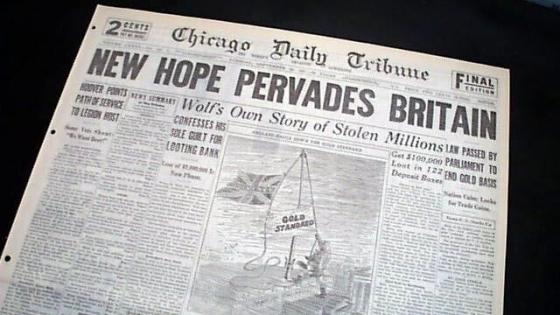Discussion paper
DP12806 Financial crises and political radicalization: How failing banks paved Hitler's path to power
Do financial crises radicalize voters? We study Germany's 1931 banking crisis, collecting new data on bank branches and firm-bank connections of over 5,500 firms. Exploiting cross-sectional variation in pre-crisis exposure to failing banks, we show that Nazi votes surged in locations more affected by the financial crisis. Radicalization in response to the shock was exacerbated in cities with a history of anti-Semitism. After the Nazis seized power, both pogroms and deportations were more frequent in places affected by the banking crisis. Our results suggest an important synergy between financial distress and cultural predispositions, with far-reaching consequences.
£6.00


